79 F. high temperature in the Twin Cities Wednesday.
77 F. average high on June 10.
77 F. high on June 10, 2014.
.32" rain predicted for St. Cloud.
4.5" rain predicted for the Twin Cities.
June 10, 1926: Downpour at Mahoning. 3.05 inches fell in 45 minutes.
Flash Flood RiskBeing
surprised by flooding in June is a little like being indignant about
snow in January - it comes with the turf. June is the wettest month of
the year, on average. And Mother Nature is about to prove it.
Minnesota
has warmed 3 degrees F. since 1800. That's not a climate model, that's
based on observations, factoring in the urban heat island effect.
Basic
physics: warmer air can hold more water vapor. There's more fuel
floating overhead. When it does rain it tends to rain harder. 4 of the
last 5 Junes have been "historically wet", according to Dr. Mark Seeley.
Maybe it's a coincidence.
Rain becomes steadier and heavier as
the day goes on today; the best chance of downpours during the PM hours.
Models print out some 2-4 inch amounts. More parking lots, asphalt
& concrete means a higher risk of flash flooding for urban areas.
The
drive home later today may be a vehicular freak show; a white-knuckle
ordeal of mud & construction cones. Good luck out there.
Skies clear
Friday; sun much of
Saturday giving way to more thunder
Saturday night and
Sunday.
From drought to flood, on a smaller scale than Texas, we pray. Are we in for some weather-whiplash?
It's looking that way.
Seriously Wet.
The latest WRF model (courtesy of HopWRF) shows an impressive shield of
rain from today's storm, a cyclonic swirl that resembles something you
might expect to see in March or October - a little odd of June. But odd
is the new normal right? Where the axis of 4"+ rains will set up is
still in question, but there's now little doubt that many locations over
the southern third of Minnesota will get soaked by 2-4" of rain today
and tonight.
Consistent Model Guidance.
I was skeptical when the 12z NAM model printed out 3.5" of rain. And
then came last night's 00z run, with 4.5" of rain by breakfasttime
Friday. The heaviest rains come this evening and early tonight, when the
risk of urban flooding, flash flooding will peak. Travel conditions
will become increasingly difficult as the day goes on today; leave
PLENTY of extra time to get home this afternoon and evening.
Flash Flood Watch.
I wouldn't be surprised to see the local office of the Twin Cities
National Weather Service extend the flood watch farther north, to
include the immediate metro area. Details on the watch:
MODERATE TO HEAVY RAIN WILL MOVE INTO SOUTHERN MINNESOTA THURSDAY
MORNING AND SPREAD INTO WESTERN WISCONSIN BY THURSDAY AFTERNOON.
RAIN WILL BE HEAVY AT TIMES...WITH RAINFALL RATES UP TO TWO INCHES
PER HOUR POSSIBLE...ESPECIALLY THURSDAY AFTERNOON INTO THE
EVENING. 2 TO 4 INCHES OF RAIN ARE CURRENTLY EXPECTED ALONG AND
SOUTH OF A LINE FROM NEW ULM...TO HASTINGS...TO CHIPPEWA FALLS
WISCONSIN. WITHIN THIS AREA...STORM TOTAL RAINFALL AMOUNTS IN
EXCESS OF 4 INCHES WILL BE POSSIBLE...WITH THE MOST LIKELY REGION
FOR THAT RIGHT NOW BEING ALONG AND NEAR A LINE FROM FAIRMONT...TO
OWATONNA...TO AUGUSTA WISCONSIN. RUNOFF FROM THIS RAIN WILL HAVE
THE POTENTIAL TO LEAD TO RAPID RISES IN LOCAL CREEKS AND
STREAMS...ALONG WITH PONDING OF WATER IN LOW LYING AREAS.
Gully-Gushing.
Most June rains come in the form of thunderstorms, one at a time or
"training" storms, where cells repeatedly reform over the same boundary,
passing over the same counties, like the cars in a train. That's where
some of our extreme amounts usually come from this time of year. There
may be a few thunder claps out there by evening but most of today's rain
will be stratiform, caused by rapid and sustained uplift of warm, moist
air, passing up and over a shallow layer of cooler air in the ground -
it probably won't get out of the 60s here today, setting the stage for
close to a month's worth of rain in 24 hours. NAM animation: NOAA.
A Tropical Pattern.
No excessive heat in sight; a series of weak Canadian cool frontal
passages keep the blast-furnace heat well south of Minnesota. Those
puffs of cooler, drier air will set up east-west boundaries that will
attract more scattered T-storms Saturday night into Sunday, another
chance the latter half of next week. Source: Weatherspark.
Alaska Just Had Its Hottest May in 91 Years. Here are more details from
The Washington Post: "...
And now, the National Oceanic and Atmospheric Administration reports that the state as a whole experienced its warmest May in the weather books. As the agency puts it:
The Alaska
statewide average temperature for May was the warmest on record in 91
years of record keeping at 44.9°F, 7.1°F above average. The warmth in
Alaska was widespread with several cities were record warm, including
Barrow and Juneau.
Photo credit above: "
View of a sunset from an Alaska Marine Highway ferry ride near Sitka, Alaska, on June 16, 2014." (Linda Davidson/The Washington Post).
Severe Weather Reports So Far in 2015.
Here are the locations of tornadoes and funnels (red), 1"+ hail (green
dots) and straight-line wind damage (blue) for Minnesota and Wisconsin
so far this year. All things considered it's been pretty quiet - no
devastating squall lines or major tornadoes impacting heavily populated
areas. So far we've been pretty lucky. Source:
NOAA SPC.
Hurricanes Can Inflict Major Damage Beyond Their Predicted Paths. Here's a snippet of a good article and timely reminder from James Franklin at NHC, The Conversation, and
Scientific American: "...
Nearly
20 years later, even as the science has progressed, Max Mayfield’s
advice is still sound—don’t focus on the skinny black line! Forecasts
are uncertain, and an appreciation of that uncertainty is essential to
smart decision-making when hurricanes threaten. To help educate users,
NHC has established a web page dedicated to forecast accuracy.
Please drop by and have a look to see how well our forecasts measure
up. And finally, even though NOAA and others are expecting a relatively
quiet 2015 Atlantic hurricane season, remember: it takes only one bad
storm in your neighborhood to make it a bad year for you." (Hurricane Isaac file photo: NASA MODIS).

Better Hurricane Observation Techniques Over The Decades Make Big Storms Less Deadly. Here's an except of an interesting story at
Live Science: "...
Landline telegraph reports and, after 1910, radio ship reports formed the observational basis of real-time forecasts until Joseph Duckworth
flew a single-engine instrument-training airplane into the “Surprise”
Hurricane of 1943. Once aviators realized they could penetrate to the
centers of hurricanes and live, aircraft reconnaissance of hurricanes
became routine. Observational tools were still primitive — visual
estimation of wind direction and speed based on the appearance of the
sea and extrapolation of surface pressures from altitudes of a few
hundred feet..."
Photo credit above: "The
unnamed Categor 4 hurricane that slammed into Galveston, Texas, Sept.
8, 1900 remains the deadliest to ever hit the United States, having
killed at least 8,000 people (estimates vary) and leveling virtually the
entire town." Credit: NOAA Photo Library.

What If Major Artists Stopped Releasing Albums?
What's an album grandpa? On the heels of Apple's recent announcement
how can artists monetize their music? Merchandise only goes so far, but
there will never be a sustitute for "live". Here's an excerpt of a
thought-provoking article at
Grantland: "...
Live
music is special in ways that records can never be. You’re paying to be
part of a moment that takes place only at a specific place and time
with a select group of people. Unlike the mundane process of dialing up
an online streaming service, a concert truly is a unique experience.
It’s now accepted wisdom that few artists can make their living from
album sales. Instead, records are viewed as commercials for an artist’s
brand, with an eye toward monetizing in the form of tours,
merchandizing, licensing deals, and so on..."
SpaceX Founder Files With Government To Provide Internet Service From Space. Is there anything Elon Musk (aka Tony Stark) can't do? Here's a snippet from
The Washington Post: "
Elon
Musk’s space company has asked the federal government for permission to
begin testing on an ambitious project to beam Internet service from
space, a significant step forward for an initiative that could create
another major competitor to Comcast, AT&T and other telecom
companies. The plan calls for launching a constellation of 4,000 small
and cheap satellites that would beam high-speed Internet signals to all
parts of the globe, including its most remote regions. Musk has said the
effort “would be like rebuilding the Internet in space...”
Photo credit above: "
The
SpaceX Dragon commercial cargo craft is grappled by the Canadarm2
robotic arm at the International Space Station in this May 25, 2012,
NASA handout photo." (NASA/Reuters).
TODAY: Rain likely; heaviest amounts fall just south/east of St. Cloud. Winds: East 15+ High: 68
THURSDAY NIGHT: Rain, a few embedded T-storms. Flood risk continues. Low: 56
FRIDAY: Damp start, becoming sunny. High: 76
SATURDAY: Lukewarm sun much of the day, thunder late at night. Wake-up: 57. High: 76
SUNDAY: Sticky sun, spotty T-shower. Dew point: 63. Wake-up: 62. High: 74
MONDAY: More sunshine, less humid. Wake-up: 64. High: 81
TUESDAY: Clouds increase, PM T-showers. Wake-up: 62. High: 76
WEDNESDAY: Thundery start, partial clearing. Wake-up: 63. High: 80
* file photo credit above: Bob Israel,
RJI Photography.
Climate Stories...
Climate Encyclical Expected To Send Strong Moral Message To The World. Here's a video and story excerpt of what we might expect from Pope Francis from
The Catholic Sun: "
Pope
Francis’ upcoming encyclical on ecology and climate is expected to send
a strong moral message — one message that could make some readers
uncomfortable, some observers say. “The encyclical will address the
issue of inequality in the distribution of resources and topics such as
the wasting of food and the irresponsible exploitation of nature and the
consequences for people’s life and health,” Archbishop Pedro Barreto
Jimeno of Huancayo, Peru, told Catholic News Service..."
You Are About To See An Incredibly Rare Cloud, And It's Proof The Climate Is Changing.
Bloomberg Business has more details; here's a clip: "...
That’s when noctilucent clouds,
the world’s highest, peak in number and show up in the night sky just
after sunset as electric-blue swirls in the mesosphere, the coldest
place on the planet. Usually visible only in the polar regions, the
clouds now sometimes appear as far south as 40 degrees latitude in the
Northern Hemisphere, according to Cora Randall,
a professor at the University of Colorado’s Laboratory for Atmospheric
and Space Physics in Boulder. That’s because the mesosphere, which nears
the edge of space, is changing, possibly “due to a change in climate,”
he said. “We believe that these clouds are a really sensitive indicator...”
File photo of noctilucent clouds above courtesy of
NASA.
Even Skeptics Can Profit From Climate Change. Bloomberg's Barry Ritholtz is a professional money manager. Here is a section of a recent column at
Bloomberg View that made me do a double-take: "...
In
the real world, climate-change deniers are and will be giant money
losers. I expect those who suffer from cognitive dissonance over whether
global warming is real will soon be greeted by a brutal Darwinian
result in the markets. I don’t make many forecasts but here is one: It
is only a matter of time before the deniers exist only in think tanks
funded by the fossil energy industry and oddball conspiracy groups..."
Don't Care About Climate Change? What About The Health Of Children? Recent studies in Australia should give any parent reason for concern; here's an excerpt at
The Guardian: "...
Doctors
are concerned Australian children are already suffering health effects
from increasing temperatures, and more frequent and severe droughts,
floods, bushfires and heatwaves as a result of climate change. Doctors
are also worried about rising temperatures causing the spread of
mosquito-borne diseases, such as dengue, to areas further south,
affecting air pollution levels, and increasing allergenic pollen in the
air leading to higher rates of hayfever and asthma. Recent research from
Brisbane and Westmead Children’s Hospital in Sydney demonstrated that
higher temperatures increased rates of child emergency department
attendances for fever, gastroenteritis and asthma..."
Climate Peril Stirring in Permafrost, Experts Tell U.N. Business Standard has the story - here's an excerpt: "...
About
1,500 billion tonnes of heat-trapping carbon gas are estimated to be
locked in permafrost, which is thawing as the climate warms, according
to new research. Releasing the carbon will create a vicious cycle in
Earth's global-warming problem, said Susan Natali of the Woods Hole
Research Center in Massachusetts. The estimated amount of carbon in
permafrost -- perennially frozen ground covering about a quarter of
exposed land in the northern hemisphere -- represents about twice the
volume currently in the atmosphere, she said..." (File photo: NASA).
Emissions From Energy Have Slowest Gain Since 2009 Drop, BP Says.
Bloomberg Business has the article; here's a snippet: "
Carbon
dioxide emissions from energy use had the slowest growth last year
since a drop in 2009 as Chinese consumption of coal flattened, according
to BP Plc. Output of the greenhouse gas from burning fossil fuels rose
0.5 percent from the previous year, London-based BP said Wednesday in
its annual Statistical Review of World Energy. That was the smallest
increase for any year since 1998, with the exception of 2009, when
emissions fell 1.5 percent, it said..." (File photo: Matt Brown, AP).
Coal-Plant Rules Proposed by EPA Survive Challenge in Federal Court. Here's the latest from
The New York Times: "
A
federal court on Tuesday dismissed a lawsuit by the nation’s largest
coal companies and 14 coal-producing states that sought to block one of
President Obama’s signature climate change regulations. The lawsuit, Murray Energy v. E.P.A.,
challenged the Environmental Protection Agency’s proposed rule to
reduce planet-warming greenhouse gas emissions from power plants. If
enacted, the rule could shutter hundreds of such plants, freeze
construction of future plants and slow demand for coal production in the
United States..."
File photo credit above: "In
this Tuesday Jan. 20, 2015 file photo, a plume of steam billows from
the coal-fired Merrimack Station in Bow, N.H. The Obama Administration’s
hotly debated plan to cut the amount of heat-trapping carbon dioxide
coming out of the nation’s power plants will save about 3,500 lives a year from also reducing other types of pollutions, a new independent study concludes." (AP Photo/Jim Cole, File)
Risk of Flooding Rises With Global Warming, Says Study.
We're witnessing more frequent bursts of extremely heavy rain. In many
cases Infrastructure designed and built in the 20th century can't keep
up with 21st century downpours. Here's an excerpt of a story at
The Toronto Star: "...
Peak rainfall during storms will intensify as the climate changes
and temperatures rise, leading to increased flash flood risks,
especially in urban areas, new research from Australia indicates.
Scientists at the University of New South Wales in Sydney analyzed about
40,000 storms from three decades in Australia and found that warming
temperatures are dramatically disrupting rainfall patterns within storms..."
Image credit above: Virginia Department of Transportation.
Republican Pledges $175 Million To Push Party on Climate. An unlikely headline, signs of a growing schism within the GOP on environmental matters. Here's an excerpt from
Politico: "
A
Republican entrepreneur is putting a whopping $175 million behind a
campaign whose message will have some party stalwarts seeing red: The
GOP needs to deal with climate change. North Carolina businessman Jay
Faison will launch a social media and online advertising blitz, backed
by state and national digital advocacy efforts and a series of strategic
grants, as part of a $165 million campaign run through the ClearPath
Foundation..."
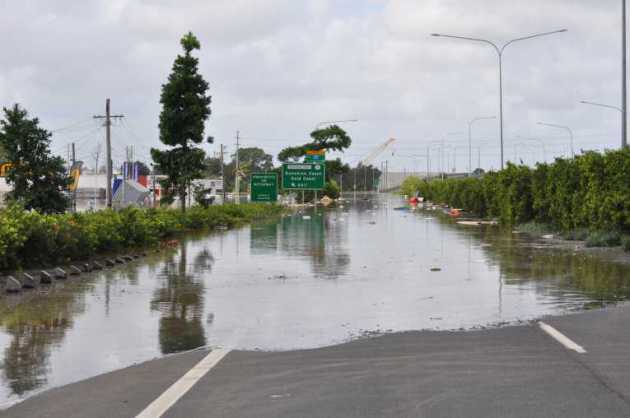
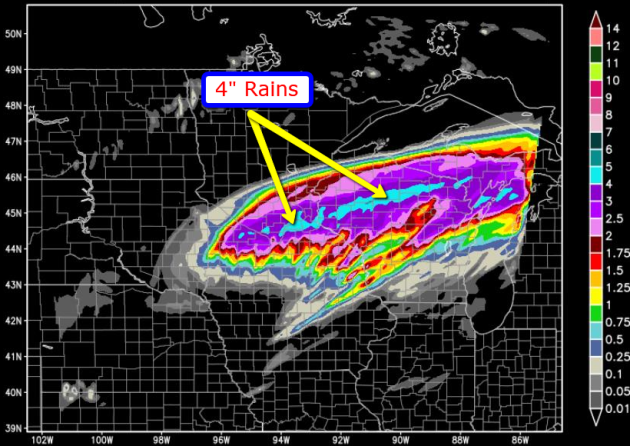
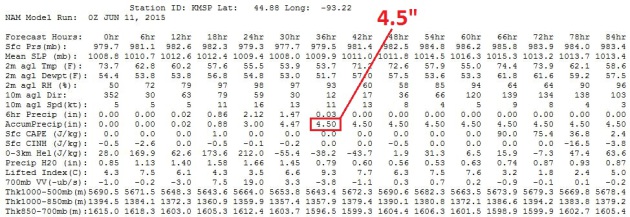
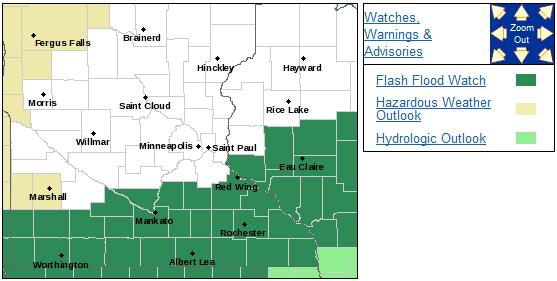

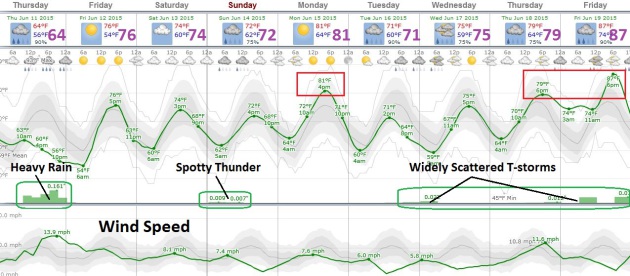
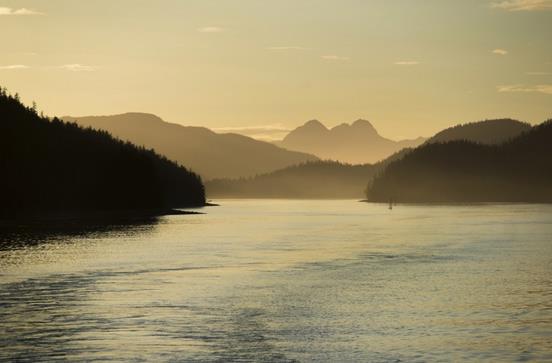
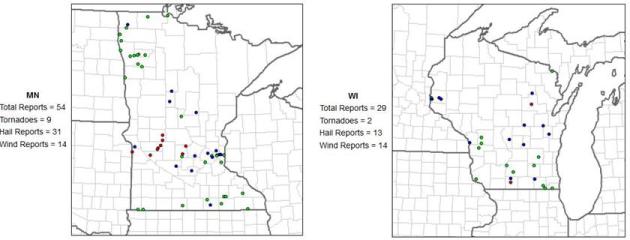
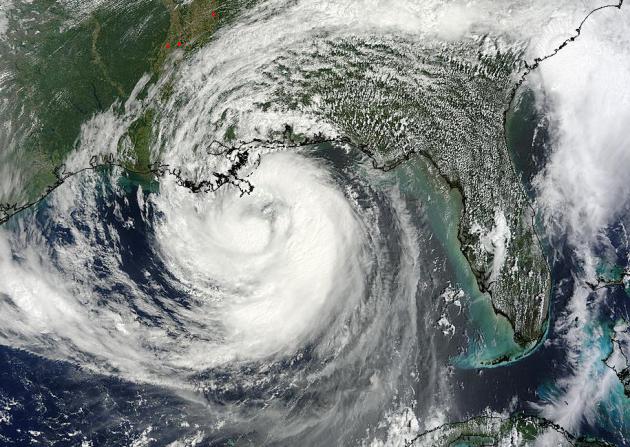
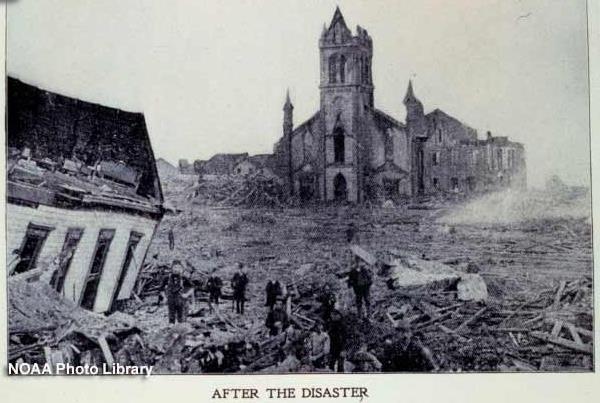

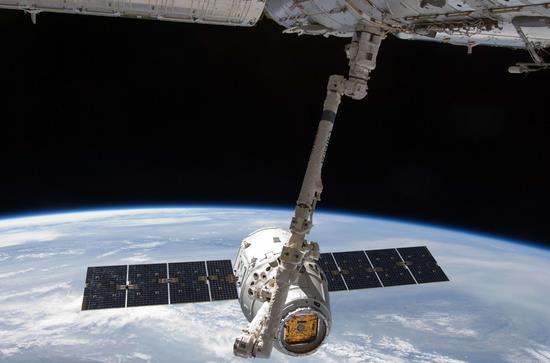
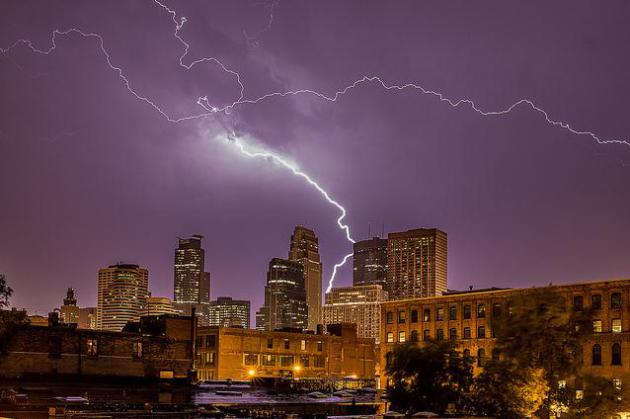

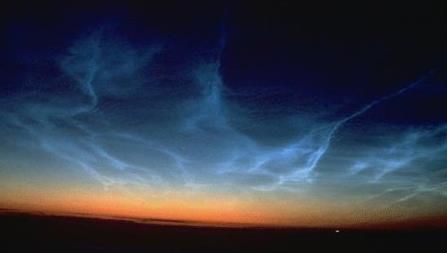
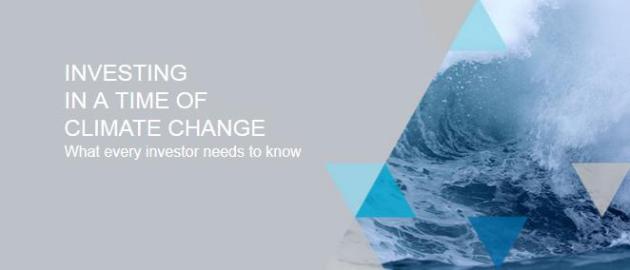
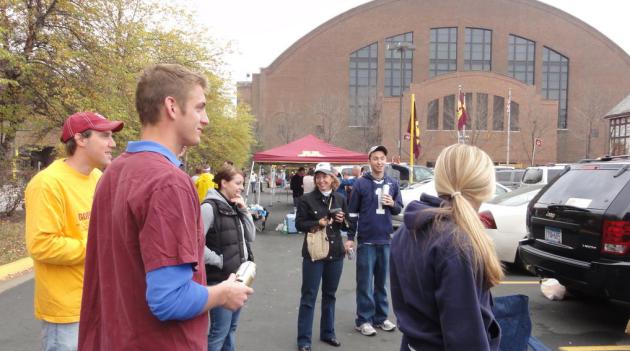
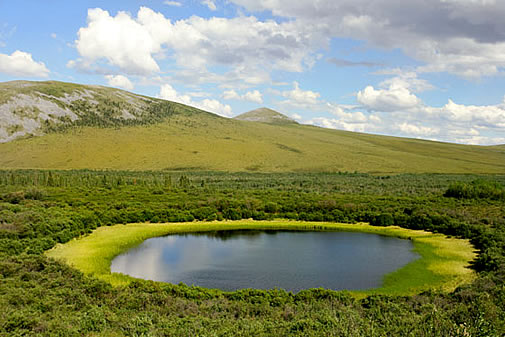
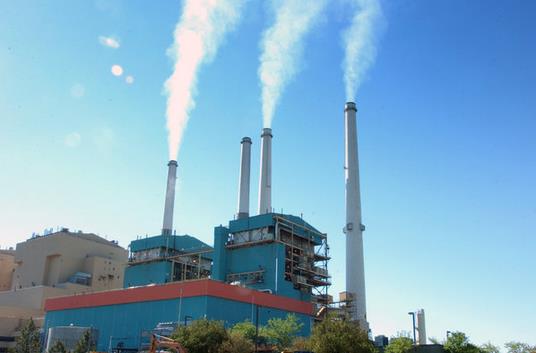
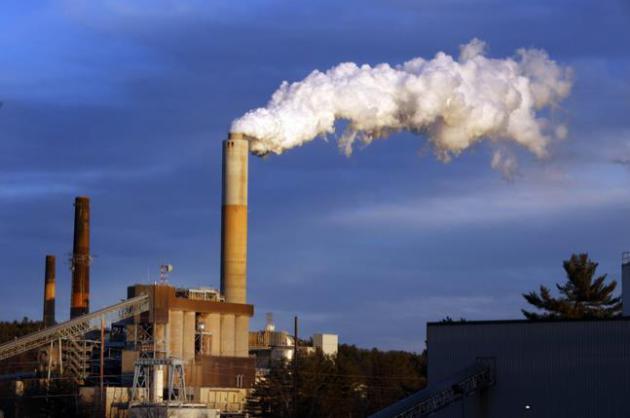
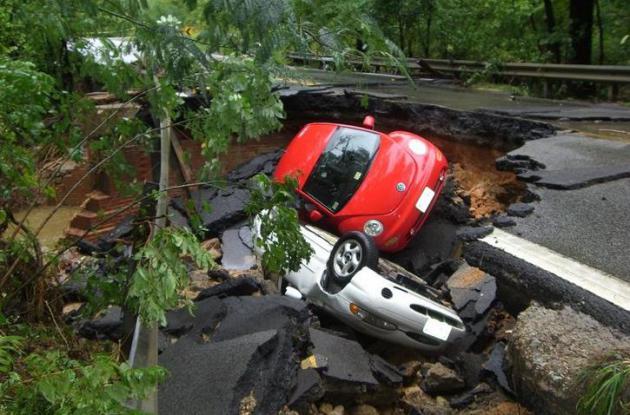
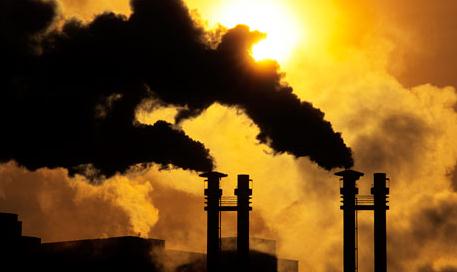
No comments:
Post a Comment